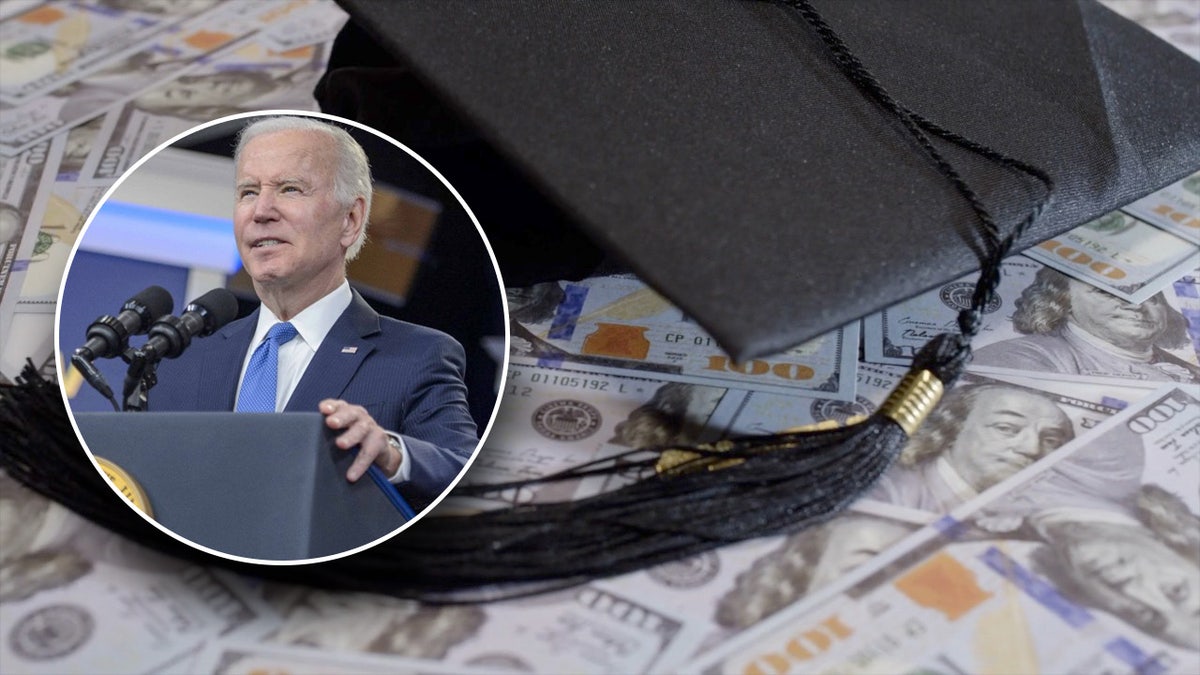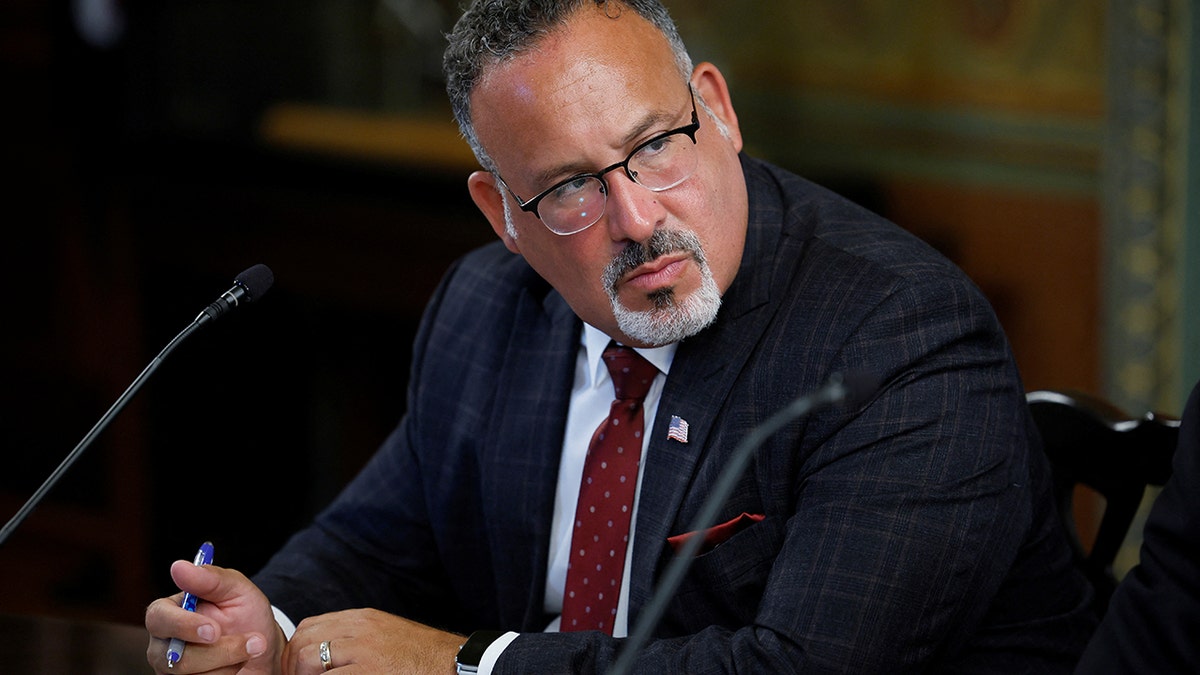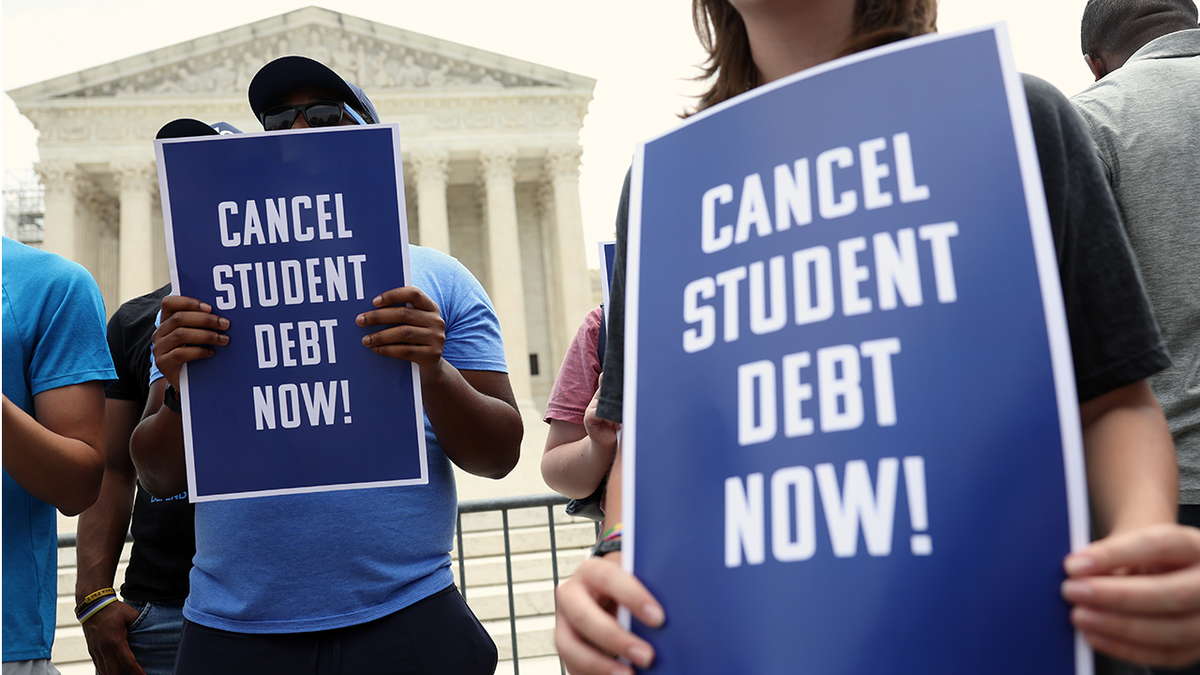Legal experts interviewed by Fox News Digital are expressing concern that President Joe Biden’s ongoing efforts to cancel student loans may be pushing the limits of his executive authority.
The experts said the Biden administration’s pursuit of mass student debt forgiveness may be more politically motivated than legally justified, warning that additional legal challenges may arise as a result. Biden’s first attempt to cancel student debt — which would have canceled roughly $430 billion in federal student loan balances and erased the debts of 20 million borrowers — was struck down last year by the Supreme Court.
“At a fundamental level, Congress is the one who should be making these decisions,” Anastasia Boden, the director of the Cato Institute’s Robert A. Levy Center for Constitutional Studies, told Fox News Digital in an interview. “These are decisions that entail billions of dollars in forgiveness and really threaten the viability of the entire student loan program because we know that forgiveness programs like this just tend to drive up the prices of education.”
BIDEN PLANS EVEN BIGGER STUDENT LOAN HANDOUT, DUMPING THE BILL ON YOU
Shortly after Biden’s original student debt forgiveness program was overturned by the Supreme Court in a 6-3 decision in June 2023, the president blasted the high court and accused it of misinterpreting the Constitution. The ruling, the president remarked, is “snatching from the hands of millions of Americans thousands of dollars in debt relief that was about to change their lives.”
However, the president has pursued a plan B strategy since the decision: a piecemeal approach, leveraging and expanding various existing Department of Education loan programs. Last week, Biden committed to “continuing to pursue an alternative path to deliver student debt relief to as many borrowers as possible as quickly as possible.”
NATIONAL DEBT TRACKER: SEE WHAT AMERICAN TAXPAYERS (YOU) OWE IN REAL TIME
“They’ve become more careful,” said Michael Poon, an attorney at the public interest law firm Pacific Legal Foundation. “Now, they’re doing things through a normal administrative process, a normal rulemaking process. But many parts of their student loan cancelation efforts are still unlawful in the same way. They still are not authorized by statutes that Congress has passed.”
“It’s really just loan cancelation by another name,” Poon continued. “So, they’re expanding exemptions, they’re saying that certain parts of loans will just be forgiven outright. A lot of those parts of the program are still not authorized by statute. They’re just being a little more subtle about it and trying to keep it out of the court.”

He noted that the Supreme Court’s ruling last year emphasized that Congress “has to speak really clearly” authorizing a federal program that is at the scale of Biden’s original student debt plan. Highly political programs, according to Poon, should be decided by the most responsive and most democratic branch of government: Congress.
“I think we should all be concerned any time a president acts beyond the authority that’s granted to him by law, because the rule of law is what protects liberty and stops the country from becoming a dictatorship or a tyranny,” Poon continued. “I think that the Biden administration’s loan cancelation efforts are an example of what happens when a president tries to stretch his legal authority to accomplish aims that are not authorized by law.”
BIDEN BRAGS SUPREME COURT ‘DIDN’T STOP’ HIM FROM CANCELING STUDENT LOANS: HE’S ‘HAPPY TO BREAK THE LAW’
Overall, using a wide range of Department of Education programs, the Biden administration has awarded $143.6 billion in student loan forgiveness to nearly four million Americans, a large slice of the $1.7 trillion in total student loan debt owed by Americans. The latest cancelation came last week when Education Secretary Miguel Cardona announced an additional $5.8 billion in student loan debt relief for 77,700 borrowers.
The largest share of the overall total, roughly $62.5 billion, has been delivered by the Department of Education’s so-called Public Service Loan Forgiveness (PSLF) program. Under the president’s direction, the department recently “fixed” the PSLF, vastly expanding its scope and borrowers’ eligibility. Prior to those changes, just 7,000 borrowers had benefited from the PSLF.

In addition, the Department of Education recently created Saving on a Valuable Education (SAVE) Plan, the newest type of income-driven repayment plan that allows borrowers to modify their monthly student debt obligation based on their income.
“Unlike what they did in August 2022, they weren’t forthcoming with a lot of heavy legal justifications for this,” Jack Fitzhenry, a legal fellow at the Heritage Foundation’s Edwin Meese III Center for Legal and Judicial Studies, told Fox News Digital. “The consistent refrain coming from the White House and the Department of Education is, ‘Oh, we are simply fixing past administrative mistakes so that borrowers get the credit that they deserve.’”
CONSEQUENCES OF BIDEN’S PLAN TO CANCEL STUDENT LOAN DEBT, ACCORDING TO EXPERTS: ‘ENORMOUS CONSEQUENCES’
“I think the problem is that what they seem to be doing is not necessarily fixing past mistakes,” Fitzhenry said. “The bigger issue from a legal standpoint, seems to be that the Biden White House is reimagining what a qualifying repayment is.” He said that determination was already made by Congress — but the Biden administration has now effectively made its own rules.
And Beth Akers, a senior fellow at the American Enterprise Institute who has researched the economics of higher education, warned of the broader implications of mass student debt relief. For example, she said the program will likely benefit wealthy Americans and may cause universities to raise prices even higher if they determine students are going to eventually have their debt canceled.
BIDEN’S $1.2B STUDENT DEBT CANCELATION IS ABOUT ‘BUYING VOTES’ TO WIN RE-ELECTION, SAYS GOV NOEM
She also said the administration’s efforts on the issue have largely been political, noting the president’s remarks during the 2020 presidential campaign that mass cancelation of student loan debt would be economically unfeasible.

“I think Biden appreciates the economic challenge of creating a student loan bailout and why it doesn’t make perfect economic sense,” she said. “But why did he ultimately propose the cancelation plan as part of his platform? He needs to be able to hang with the rest of the Democratic Party, which had decided that this was the status quo for them — to be pro-cancelation.”
“I think at this point, voters have internalized the message that loans can or should be forgiven and are looking for that. And I do think that even the piecemeal approach may be a way for the administration to keep the message that they are canceling student loans in papers and headlines because it’s kind of this drip, drip, drip.”
The Department of Education didn’t respond to a request for comment.
Read the full article here